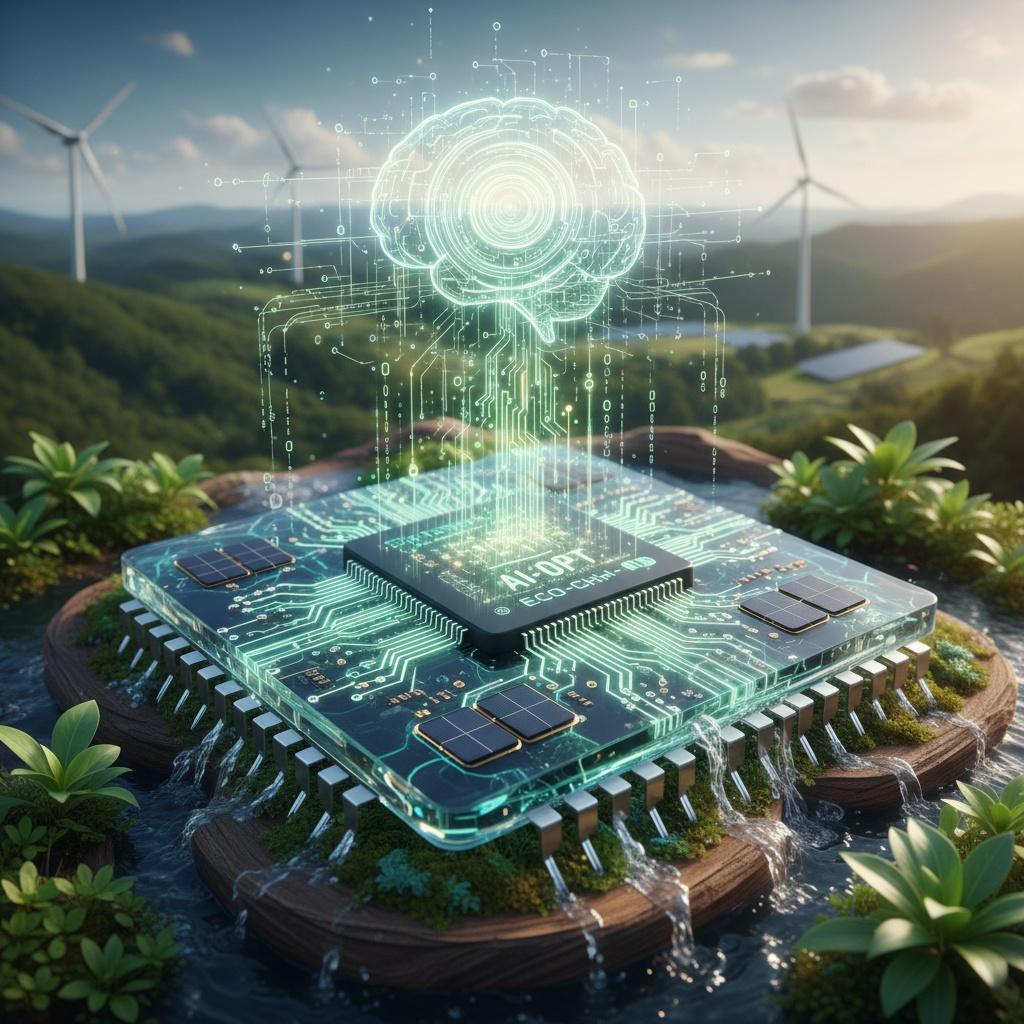In the rapidly evolving landscape of technology, AI-optimized chips and sustainable electronics are spearheading a transformative wave in hardware innovation. As demands for smarter, faster, and eco-friendly devices accelerate, the semiconductor industry is focusing on blending cutting-edge performance with environmental responsibility.
AI-optimized chips for 2025 are redefining computing power, especially at the edge. New architectures, such as NVIDIA’s Blackwell Ultra and AMD’s MI350 series, leverage AI-driven design automation to deliver unprecedented performance boosts while improving energy efficiency. These chips are powering everything from autonomous drones to real-time industrial robotics, offering localized processing that reduces latency and enhances privacy.
Behind these advances lies the revolutionary integration of AI in chip design and manufacturing. Tools like Synopsys DSO.ai and Cadence Cerebrus harness machine learning to automate complex layout optimizations, accelerating development cycles by up to 75%. This results not only in faster time-to-market but also in chips with smarter transistor configurations that maximize computational efficiency.
Thermal management has become a critical focus area as AI chips generate more heat due to increased processing capabilities. Innovative cooling techniques like microfluidics-based liquid cooling are being deployed in data centers to sustain high-density AI workloads without compromising chip longevity or performance.
On the sustainability front, electronic manufacturers are innovating with bio-based materials such as cellulose nanocrystals and bio-derived conductive inks. These materials reduce reliance on fossil-fuel-based plastics and metals, enhancing device biodegradability and lowering overall carbon footprints. The industry is also emphasizing recyclable metals and plastics in PCBs and casings, enabling better end-of-life management and reducing e-waste.
Manufacturing innovations contribute significantly to sustainability efforts with energy-efficient production methods that curtail emissions and water usage. The integration of digitalization and IoT-driven energy management in semiconductor fabrication plants facilitates greener operations. Companies are embracing circular economy principles, focusing on redesign, reuse, and recycling to minimize environmental impact throughout the electronics lifecycle.
The convergence of AI-optimized hardware and sustainable electronics showcases the industry’s commitment to balancing technological advancement with eco-conscious practices. This dual approach not only fuels smarter devices but also aligns production with global sustainability goals, fostering resilience and responsibility in tech ecosystems.
Looking ahead, continuous collaboration between AI innovators and sustainability advocates will be essential. Strategic partnerships, such as the one between OpenAI and Broadcom, highlight the scale of investment aimed at powering next-generation AI accelerators while embracing sustainability ideals.
Ultimately, the future of electronics lies in this synergistic blend of performance and green design, guiding the hardware sector toward a more innovative and planet-friendly horizon, where AI capabilities and sustainability coexist harmoniously.






